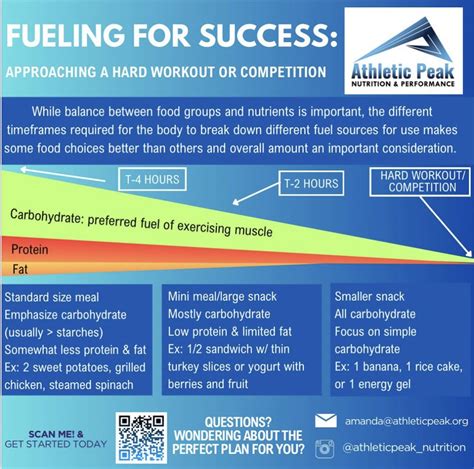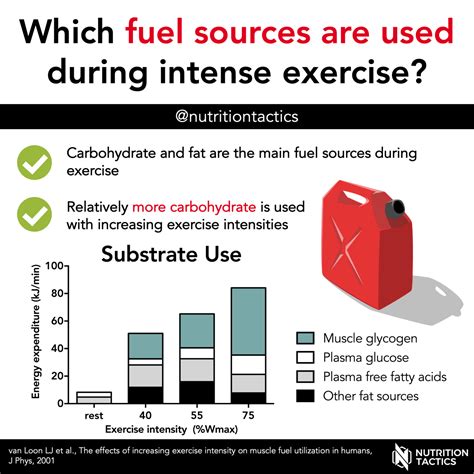The Dynamic Role of Carbohydrates in Men’s Nutrition
For men aiming to optimize their physical performance, body composition, and overall health, understanding the dynamic role of carbohydrates is paramount. Carbohydrates serve as the body’s primary and most efficient fuel source, especially crucial for high-intensity physical activity. However, the exact amount needed can vary dramatically depending on an individual’s daily energy expenditure. The contrast between days packed with intense workouts and those spent predominantly sedentary necessitates a thoughtful adjustment in carbohydrate intake to maintain energy, support recovery, and prevent unwanted fat gain.
This article delves into the typical strategies men employ to fine-tune their carbohydrate consumption, ensuring adequate fuel for peak performance on active days while avoiding excess on rest days. It’s a balancing act that, when mastered, can significantly impact athletic prowess and long-term well-being.

Carbohydrates as the Body’s Preferred Fuel
Before diving into adjustments, it’s essential to grasp why carbohydrates are so critical. When consumed, carbohydrates are broken down into glucose, which is then used immediately for energy or stored as glycogen in the liver and muscles. Muscle glycogen is the readily available fuel source for intense and prolonged physical activity. Liver glycogen helps maintain stable blood sugar levels, providing energy for brain function and other metabolic processes. A well-stocked glycogen reserve is synonymous with sustained energy and optimal performance, while depleted stores lead to fatigue and compromised output.
Carbohydrate Intake on Sedentary Days
On days without significant physical exertion, the body’s energy demands are considerably lower. For men, this means a reduced need for rapidly accessible fuel. Typically, on sedentary days, carbohydrate intake should be moderated. The focus shifts from high-volume fueling to maintaining stable blood sugar, supporting essential bodily functions, and consuming nutrient-dense sources without over-consuming calories.
- Lower Energy Demands: With minimal activity, muscle glycogen stores are not significantly depleted. Consuming excessive carbohydrates will lead to the body converting this surplus energy into fat for long-term storage, contributing to weight gain.
- Focus on Quality: Men often prioritize complex carbohydrates, such as whole grains (oats, brown rice, quinoa), legumes, and a wide array of fruits and vegetables. These sources provide sustained energy, fiber for digestive health, and a wealth of vitamins and minerals. The fiber content helps to slow down glucose absorption, preventing sharp spikes and crashes in blood sugar.
- Protein and Healthy Fats: On sedentary days, a higher proportion of calories may come from protein and healthy fats, which promote satiety, preserve muscle mass, and support hormonal balance, without the same risk of glycogen overfill.
- Typical Adjustment: Many men will reduce their carbohydrate intake by 30-50% or more compared to their intense training days, focusing on meeting basic energy requirements rather than fueling performance.

Carbohydrate Intake on Days with Intense Physical Activity
In stark contrast, days involving intense physical activity — whether it’s heavy weightlifting, long-distance running, high-intensity interval training (HIIT), or competitive sports — demand a substantial increase in carbohydrate intake. The primary goals are to adequately fuel the workout, sustain performance, and efficiently replenish muscle glycogen stores post-exercise to facilitate recovery and adaptation.
- Pre-Workout Fueling: Approximately 1-3 hours before an intense session, men will typically consume a meal or snack rich in complex carbohydrates with some protein. Examples include oatmeal with fruit, a turkey sandwich on whole wheat, or rice with lean chicken. This provides a steady supply of glucose during the activity. For very strenuous or long workouts, a smaller, easily digestible carb source (e.g., a banana or energy bar) might be consumed closer to the activity.
- During-Workout Sustenance: For activities lasting longer than 60-90 minutes, especially endurance sports, men often consume simple carbohydrates during the workout. Sports drinks, gels, or easily digestible fruits (like dates or bananas) provide quick energy to prevent performance drops and delay fatigue. The goal is to ingest 30-60 grams of carbohydrates per hour for sustained efforts.
- Post-Workout Replenishment: This is a critical window for carbohydrate intake. Within 30-60 minutes after intense exercise, men prioritize consuming carbohydrates to rapidly replenish depleted muscle glycogen. This is often combined with protein to kickstart muscle repair and growth. Simple and moderate-to-high glycemic index carbohydrates (e.g., white rice, potatoes, fruit, sports drinks, or even some sugary cereals) are often favored here for their quick absorption, promoting faster glycogen resynthesis.
- Overall Increase: On these active days, men may double or even triple their carbohydrate intake compared to sedentary days, depending on the volume and intensity of their training. A very active male might consume upwards of 4-8 grams of carbohydrates per kilogram of body weight per day, or even more for extreme endurance athletes.

Factors Influencing Carbohydrate Adjustment
While the general principles hold, several individual factors influence the precise carbohydrate adjustments men make:
- Type of Activity: Endurance athletes (marathon runners, cyclists) generally require higher daily carbohydrate intake than strength trainers, as their primary fuel demand is continuous. Weightlifters need sufficient carbs to fuel intense sets and aid recovery, but their overall volume might be slightly less than a high-volume endurance athlete.
- Duration and Intensity: Longer and more intense workouts naturally demand more carbohydrates. A 30-minute moderate jog requires less fuel than a 2-hour high-intensity interval training session or a competitive sports match.
- Body Composition Goals: Men aiming for fat loss might adopt a slightly lower carb approach even on active days, relying more on fat for fuel (after adaptation), while those seeking muscle gain or performance enhancement will typically maintain a higher carb intake.
- Individual Metabolism and Sensitivity: Everyone processes carbohydrates slightly differently. Some men are more carbohydrate-sensitive, meaning they may gain fat more easily from excess carbs, while others are highly carb-tolerant. This often requires a degree of self-experimentation.
- Overall Diet and Nutrient Timing: The distribution of carbohydrates throughout the day, in conjunction with protein and fats, also plays a role. Strategic timing around workouts is often more important than just the daily total.
Practical Strategies for Men
To effectively manage carbohydrate intake, men often employ several practical strategies:
- Periodization of Carbs: Aligning carb intake with training cycles. Higher carb days coincide with heavy training, moderate carb days with lighter training, and lower carb days with rest days.
- Tracking and Monitoring: Many men, especially those serious about their fitness, track their macronutrient intake (carbohydrates, protein, fat) to ensure they are hitting their targets. This can involve using apps or food journals.
- Listening to the Body: Paying attention to energy levels, recovery, and performance in workouts. If energy lags, or recovery is slow, carb intake on active days might be too low. If unwanted weight gain occurs on rest days, it might be too high.
- Prioritizing Whole Foods: Even when increasing carbs on active days, the emphasis remains on nutrient-dense, whole food sources rather than relying solely on highly processed sugars, although simple sugars have their place around intense workouts.
- Hydration: Adequate water intake is crucial for glycogen storage and utilization, as each gram of glycogen is stored with approximately 3 grams of water.

Common Pitfalls and Mistakes
Even with good intentions, several common mistakes can hinder effective carbohydrate adjustment:
- Under-fueling on Active Days: Not consuming enough carbohydrates before, during, or after intense workouts can lead to premature fatigue, poor performance, prolonged recovery, and potentially muscle breakdown.
- Over-fueling on Sedentary Days: Consistently eating a high-carbohydrate diet on days with low energy expenditure will lead to excess calorie intake and increased body fat, undermining body composition goals.
- Ignoring Carb Quality: Relying heavily on refined sugars and processed carbohydrates, even on active days, can lead to nutrient deficiencies and less stable energy compared to whole-food options.
- Lack of Flexibility: Sticking to a rigid carbohydrate plan regardless of changes in training intensity or lifestyle can be detrimental. The ability to adapt is key.
- Fear of Carbs: In some fitness circles, there’s an unnecessary fear of carbohydrates. While moderation is key on sedentary days, adequate carbs are essential for high-level performance and recovery.

Conclusion
The adjustment of daily carbohydrate intake is a fundamental pillar of effective nutrition for men, particularly when balancing intense physical activity with sedentary periods. On active days, the emphasis shifts to robust carbohydrate loading to fuel performance and rapidly replenish glycogen stores, utilizing both complex and strategically timed simple carbs. Conversely, sedentary days call for a reduction in overall carbohydrate intake, with a strong focus on nutrient-dense, complex sources to maintain health without accumulating excess body fat.
Ultimately, a successful strategy is highly individualized, taking into account the type, duration, and intensity of activity, personal metabolic responses, and specific fitness goals. By understanding these principles and being mindful of their body’s signals, men can effectively leverage carbohydrates as a powerful tool to enhance their athletic performance, accelerate recovery, and achieve optimal health and body composition.




